marketingIO: One Source for All Marketing Technology Challenges. See our solutions.
Get Started for FREE
Sign up with Facebook Sign up with X
I don't have a Facebook or a X account

 Your new post is loading... Your new post is loading...
Devin Julian Lee Sykes's curator insight,
January 17, 2015 12:34 PM
This article combines three of my favorite things. Science, persuasion, and business.
Juan Alatorre's curator insight,
January 12, 2015 3:06 AM
Perfect for me since it contains information about psychology and business

Jean Luc lebrun's curator insight,
August 25, 2014 1:38 PM
Although this post claims to be based on science, it may seen unrelated to our scientific presentations topic. In actual fact, apart from scarcity, all principles proposed relate to scientific presentations quite nicely. Let's review them and add one principle to the list. Reciprocity: if you present your contribution as a potential help to the people in the room, or at least an answer to their questions - they will reciprocate by giving what is most precious to you: their attention. Authority: It does not hurt to establish authority early in subtle indirect ways such as the fame of your sponsors (logo on your slide), of your lab, of your co-authors. You could even weave into your story how long you've been working in this field ... "Six years ago when we ...". It does not necessarily mean your contribution is great, but it shows practical knowledge and good understanding of the issues in the field. Consistency: Having the audience accept the need for your paper early in your talk (motivation) is likely to get them to consider your contribution in a better light. Work on that hook slide after your title slide to grab people's attention. Liking: The difference between a scientific paper and an oral presentation is that there is nobody to like in printed paper. How do you make people like you? Establish commonality of scientific purpose, dress well, smile, keep eye contact, poke scientific fun at your topic. Consensus: Whenever you can, mention whatever is also observed by others ("in agreement with...", also observed by...") Intellectual honesty: It is one of the reasons why scientists hedge. They do so with adjectives (apparent), adverbs (possibly), verbs (suggest), modal auxiliaries (would), or expressions (our interpretation, under these conditions). Hedging is common in science. People who are too sure of what they propose irritate the genuine scientist who strives on hunches and uncertainties. A proper amount of hedging during the talk will have a combined "liking" and "authority" effect.

Ray Fowler's curator insight,
June 6, 2013 8:30 AM
Is foot in the door a polite way of saying arm twisting 
Paulina Deik's curator insight,
December 12, 2013 6:42 AM
Est-ce qu'on peut optimiser la conversion avec de la psychologie? OUI ! |
|



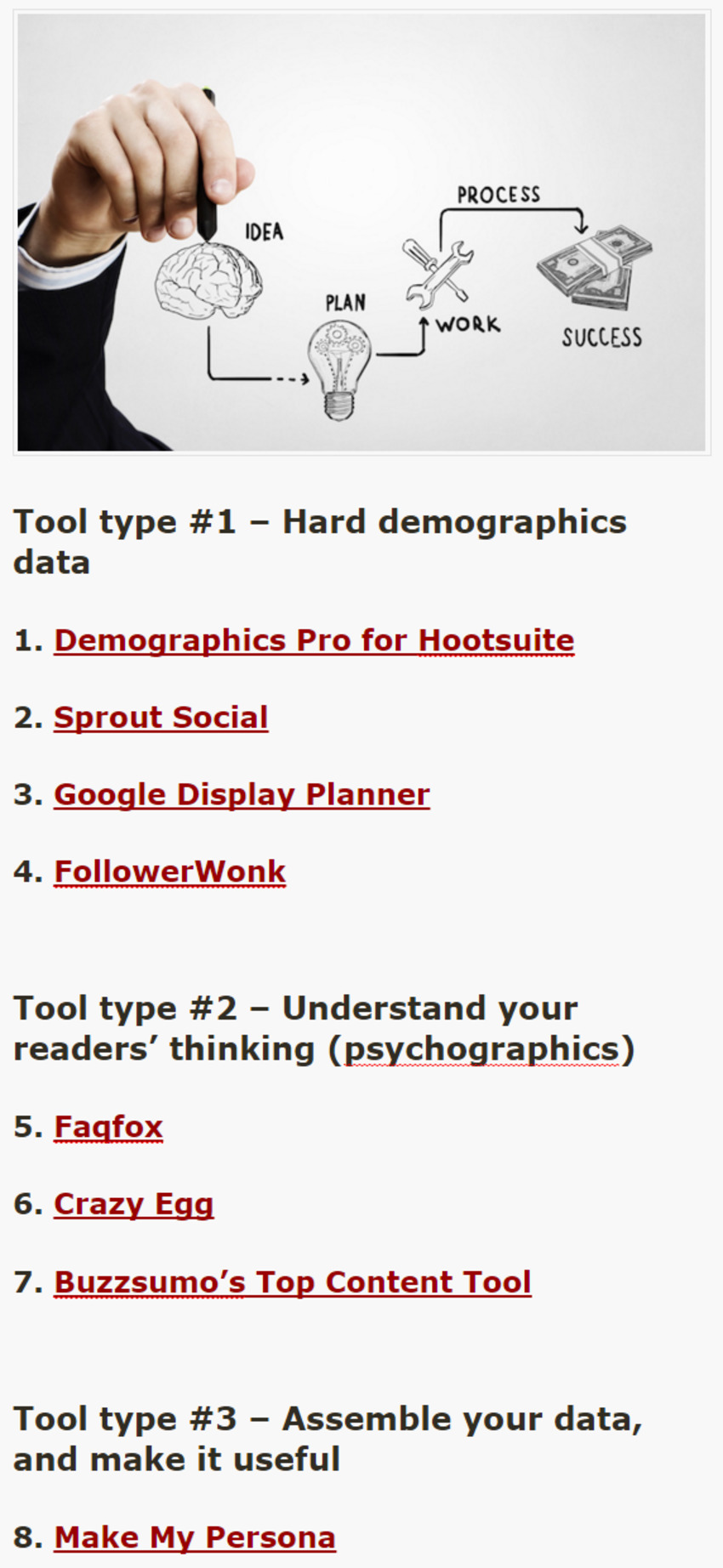

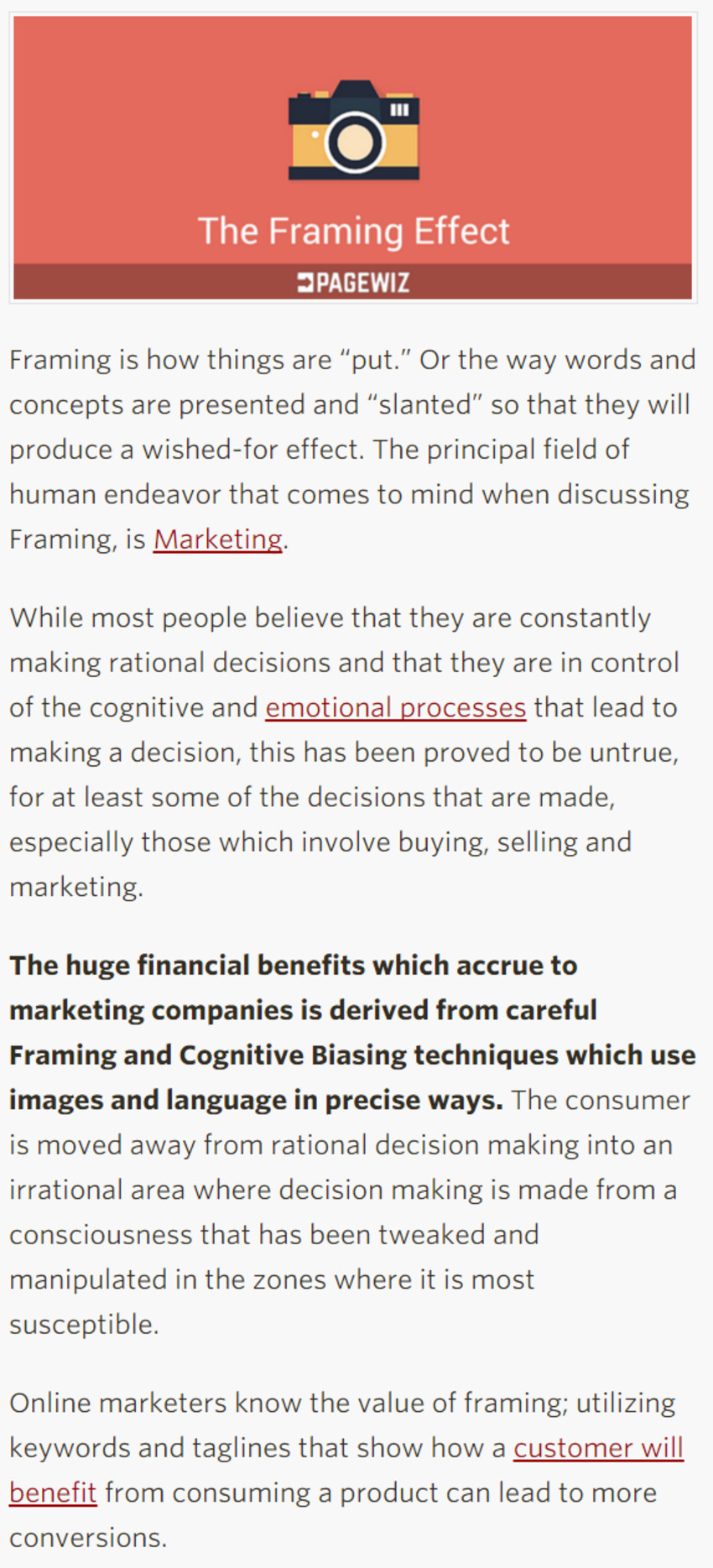


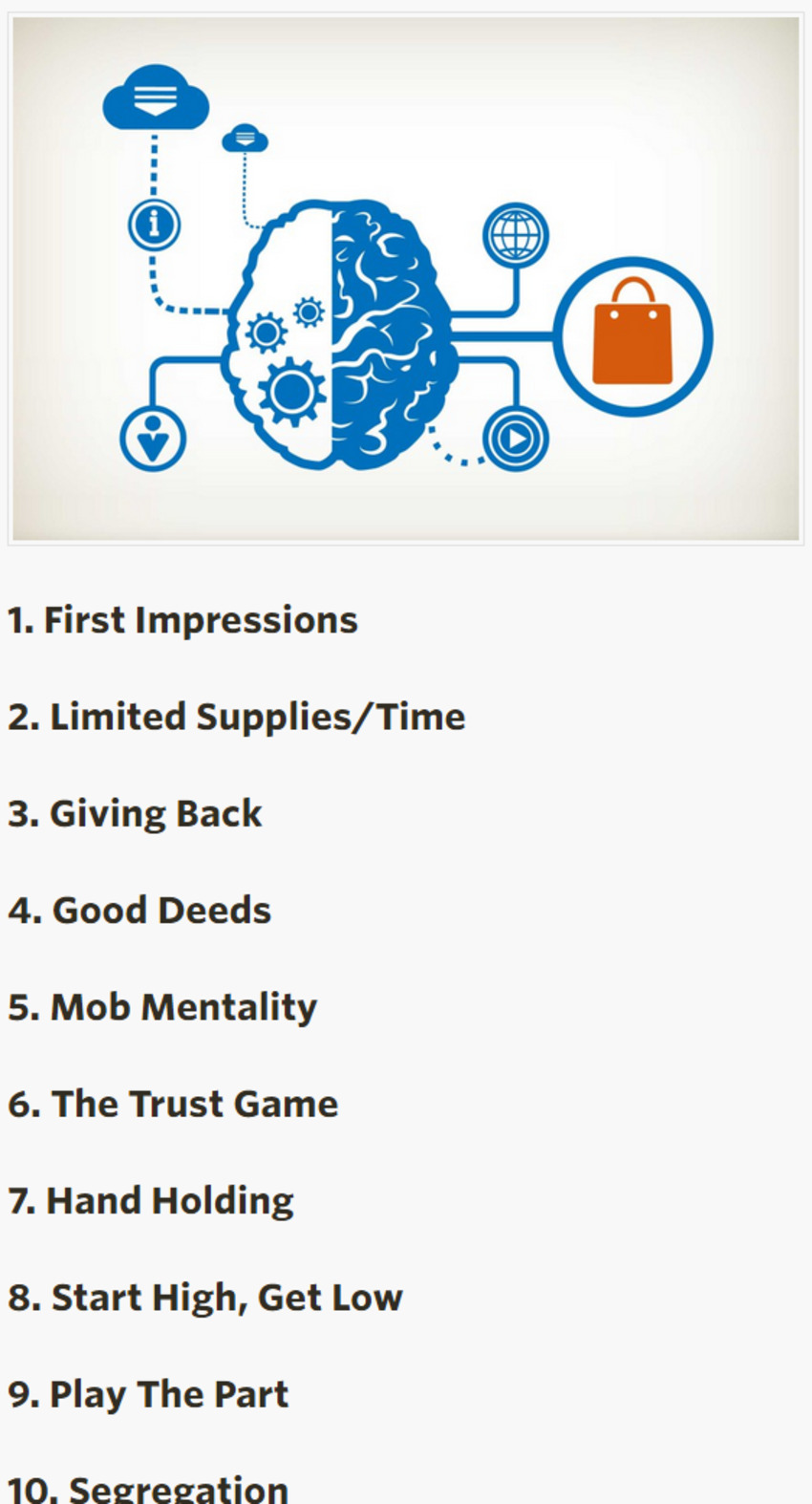

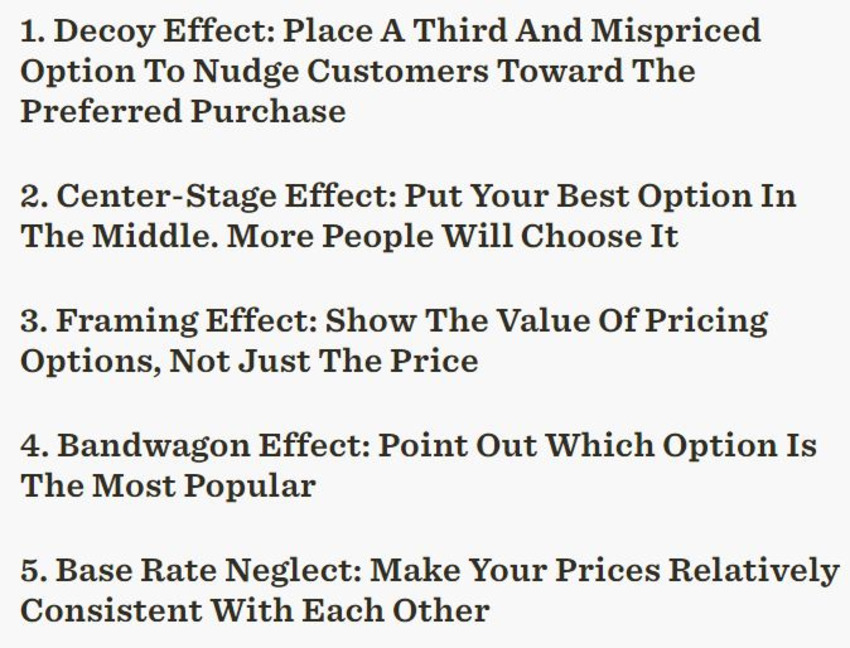
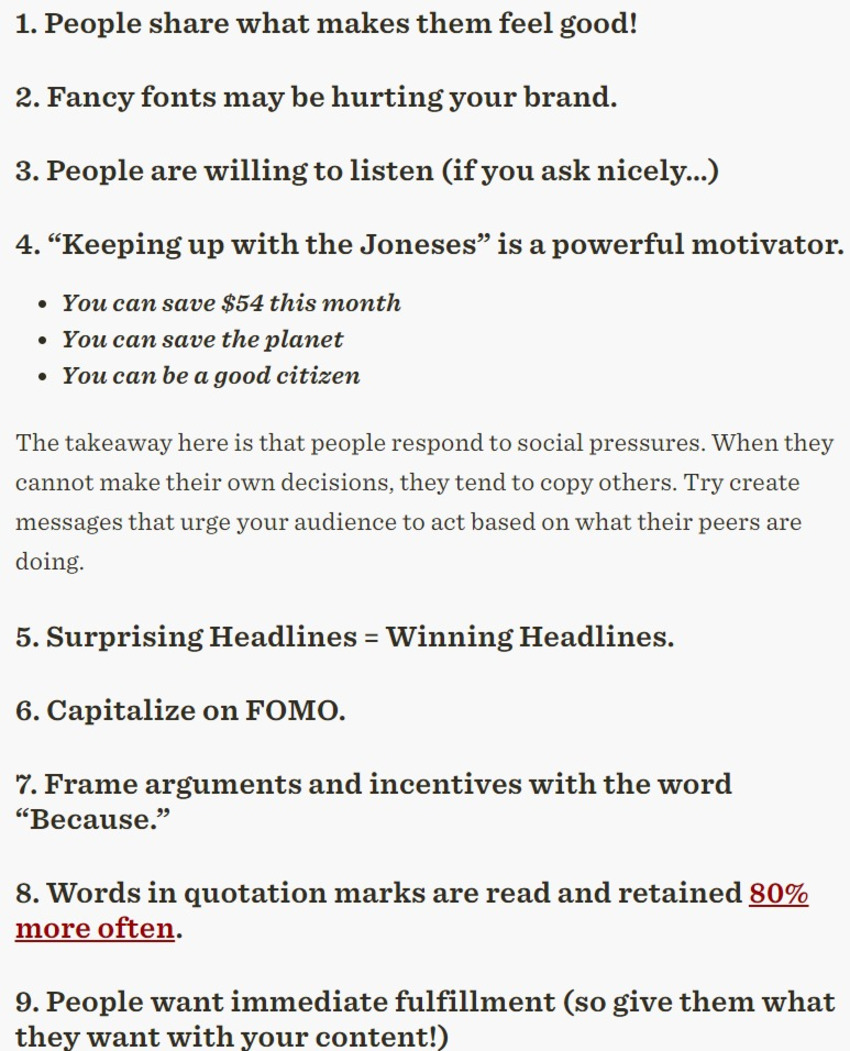


![12 Secrets of the Human Brain to Use in Your Marketing [Infographic] - Profs | The MarTech Digest | Scoop.it](https://img.scoop.it/XoDapDNZD__OscdUGVuCUPL6dadsvGA8m9WNoVsbzkY=)
![The Science of Persuasion [Infographic] - HubSpot | The MarTech Digest | Scoop.it](https://img.scoop.it/9EykDMaBIXQLwQEarAxbVvL6dadsvGA8m9WNoVsbzkY=)

![10 Ways to Increase Conversions Using Psychology [Infographic] - HubSpot | The MarTech Digest | Scoop.it](https://img.scoop.it/5CHa1Mxu3Xc8Dmc9WNISJvL6dadsvGA8m9WNoVsbzkY=)
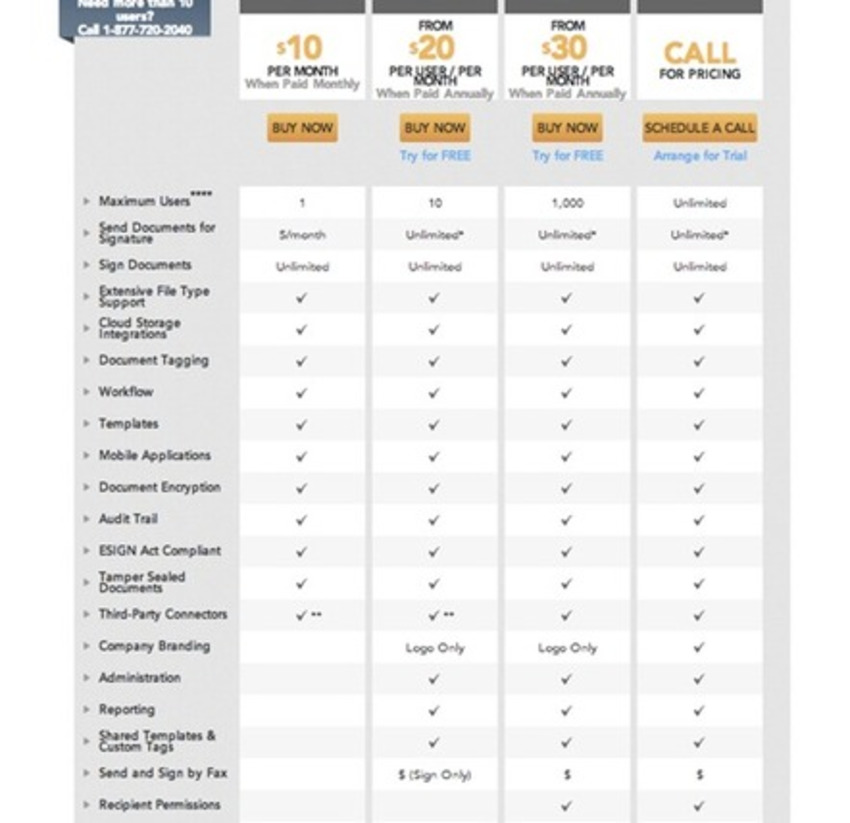
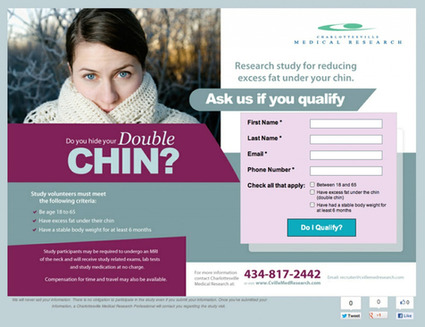
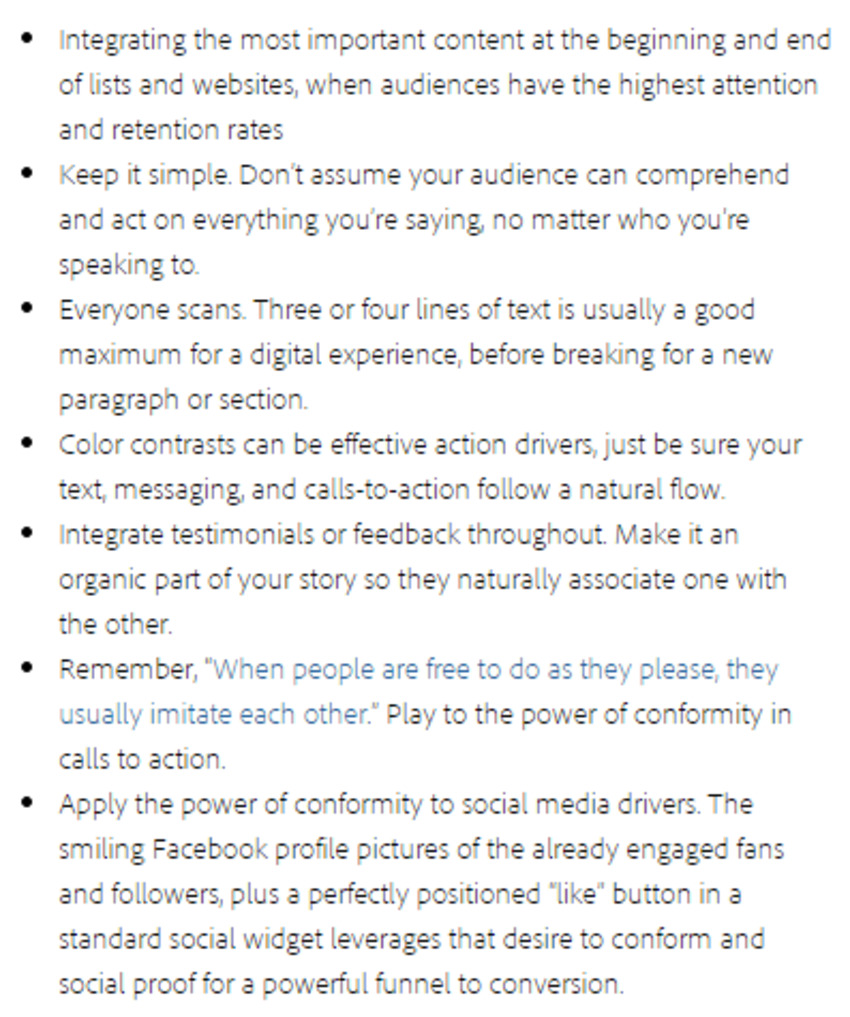


![How to Influence and Persuade - The Science Bit [Infographic] - B2B Infographic | The MarTech Digest | Scoop.it](https://img.scoop.it/ue42XTQcvDhihRH9kVv9ufL6dadsvGA8m9WNoVsbzkY=)
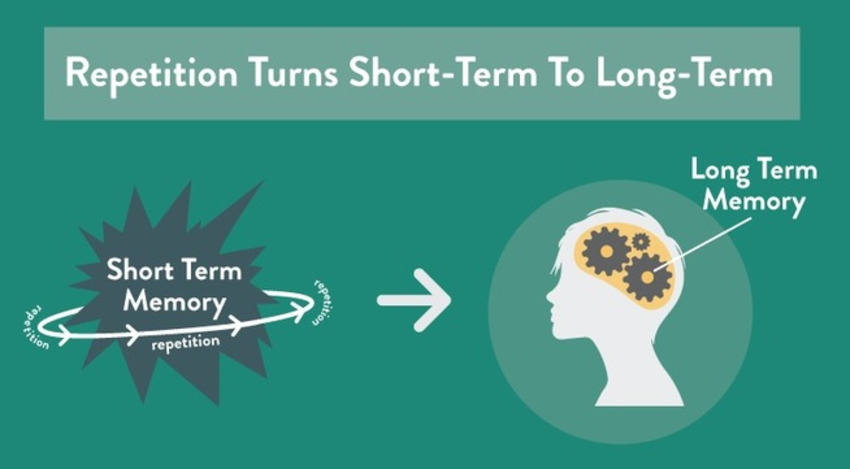




![The Psychology of Conversions [INFOGRAPHIC] - Pardot | The MarTech Digest | Scoop.it](https://img.scoop.it/GuPccvt7YviRGyofFBBtLfL6dadsvGA8m9WNoVsbzkY=)
![Using Psychology to Increase Conversions [FREE White Paper] - Pardot | The MarTech Digest | Scoop.it](https://img.scoop.it/bIODmKs4d2Ln7nmR-okdj3CypPtktPfVAn033ftACFA=)






The details to each when you CT.